.jpg?width=290&name=The%20Peter%20Principle%20(sketchplantations.com).jpg) Are people promoted to their highest level of incompetence?
Are people promoted to their highest level of incompetence?
NO!
Scaling Leadership authors Robert Anderson and William Adams believe there’s some truth to this. However, their experience and data support the belief leaders don’t cap out on their level of competence, but rather their level of development. Their inner game reaches its Peter Principle. They need to evolve.
Leaders who quit or refuse to expand their inner game, run into a wall and no longer develop. They appear to have been promoted to their highest level of incompetence.
Last blog, Leadership Is an Inner Journey, we shared how leadership is really an inner game.
This inner game runs the outer game. Creative leadership arises from a more mature inner game than does Reactive leadership.
CREATIVE/Effective vs. REACTIVE/Ineffective Leaders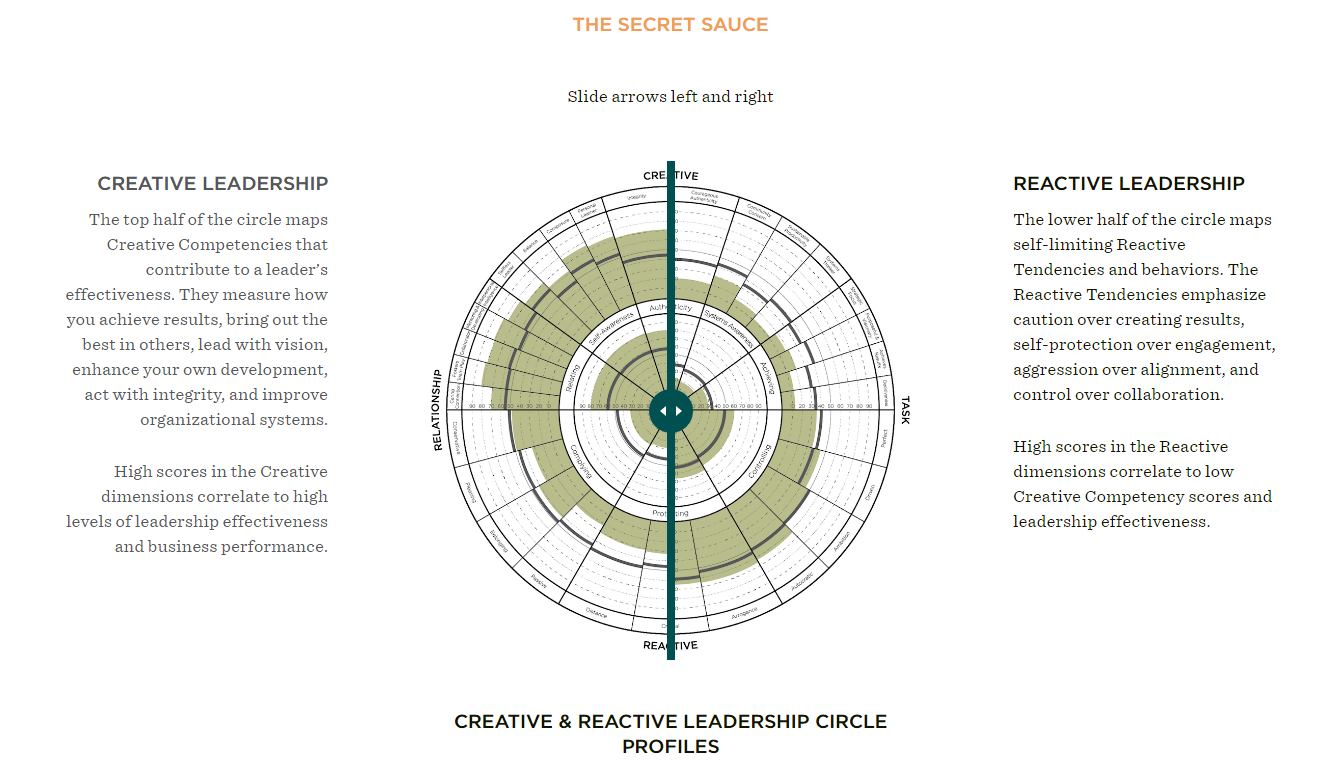
Anderson and Adams concluded the most Creative/effective and most Reactive/ineffective leaders are equally talented. In fact, if you had to choose who was the most talented—based on leaders’ comments about pure brilliance and raw intelligence—the Reactive and least effective leaders would get the nod. These people are ineffective as leaders not because they lack the talent. (Read Are Your Leadership Liabilities Canceling Your Strengths?)
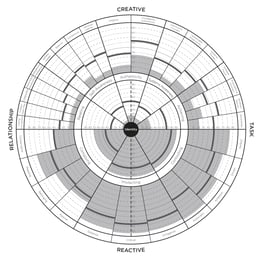 When an extremely talented leader reaches his or her limits, their experience concludes these limits are (often) within their inner game.
When an extremely talented leader reaches his or her limits, their experience concludes these limits are (often) within their inner game.
Their inner game reaches its Peter Principle. It needs to evolve. They’ve not reached the limits of their level of competence but of the development and maturity of their inner game.
Their self-awareness refuses to acknowledge their need to develop.
Scale Your Leadership
Are you really interested in becoming a better leader?
How can you invest in yourself and become one?
Start by reading Scaling Leadership.
The wisdom is in the system—it’s all around you! As a leader, you are in a feedback-rich environment whether you realize it and use it, or not.
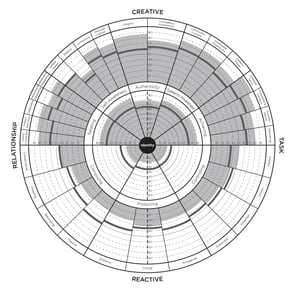 Leaders around you experience and can describe (quantitatively and qualitatively) how you are behaving, what makes you effective, and what is limiting your effectiveness.
Leaders around you experience and can describe (quantitatively and qualitatively) how you are behaving, what makes you effective, and what is limiting your effectiveness.
The question is: Do you take advantage of the feedback-rich water in which you swim every day?
Here are 3 Key Steps recommended by Scaling Leadership to transform you and your organization:
Step 1: Start with yourself. Take a deep look within yourself to understand your strengths and liabilities as a leader. Review and reflect on the list of strengths and liabilities from earlier chapters. Take the Leadership Circle Profile to see where you sit in the spectrum between Creative and Reactive, and Relationship and Task. (Be aware. If your scores place you in the reactive leadership segment, you’re probably even lower than your team would rate you – see Self-Scores compared to Rater Scores Graph below.)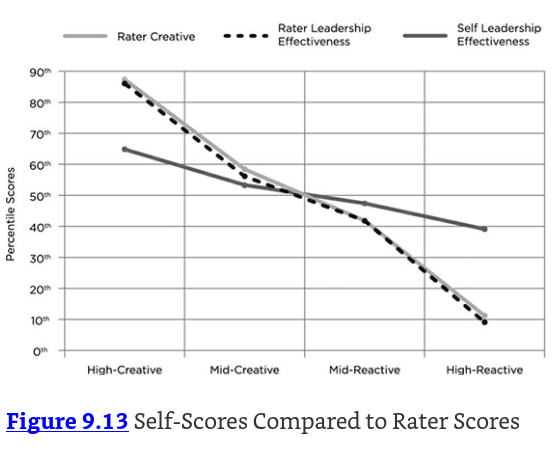 Specifically:
Specifically:
- Awareness first: acknowledge your gap
- Harvest your feedback-rich environment
- Focus on the One Big Thing
- Reach out for help
Step 2: Develop leadership teams. Once you understand your own strengths and liabilities as a leader, shift the focus to your leadership teams. This begins the process of scaling leadership beyond yourself. Specifically:
- Lead the development agenda
- Assess individual and collective effectiveness
- Get the right people in place
- Build alignment around what matters
Step 3: Build leadership systems. Creating long-term organizational change that will survive those who catalyzed it requires building systems that develop Creative or higher leadership throughout the organization. Specifically:
- Create a developmental organization
- Focus on measuring results
- Institutionalize the development agenda
Begin by starting with Yourself to discover Awareness First: Then Acknowledge Your Gap
%20Scaling%20Leadership-1.png?width=286&name=Generative%20Tension%20(Diagram)%20Scaling%20Leadership-1.png) You can’t make the first step of your journey to great leadership until you admit there’s a gap between your current leadership and the leadership you aspire to attain.
You can’t make the first step of your journey to great leadership until you admit there’s a gap between your current leadership and the leadership you aspire to attain.
Making your journey requires significant self-awareness, development, skill-building, and practice. As you become more self-aware, you put yourself in the generative tension resulting from telling the truth about who you are and who you choose to become.
How then do you become more self-aware?
You have a conversation with yourself.
Ask: “How self-aware am I?” “What do I pay attention to?” “What impact do I create across the organization?
Ask colleagues you trust in your organization, including team members and others: “What is my impact in every context in every context in which I’m required to lead?
Knowing your impact or influence is vital. You can’t lead effectively unless you are self-aware of how you deploy yourself into circumstances and what impact you are having.
To create an environment where everyone is inspired to give their best, contact Positioning Systems today to schedule a free exploratory meeting.
Growth demands Strategic Discipline.
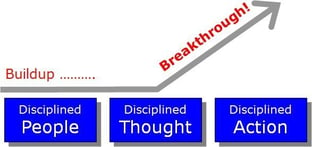 Building an enduring great organization requires disciplined people, disciplined thought, disciplined action, superior results, producing a distinctive impact in the world.
Building an enduring great organization requires disciplined people, disciplined thought, disciplined action, superior results, producing a distinctive impact in the world.
Discipline sustains momentum, over a long period of time, laying the foundations for lasting endurance.
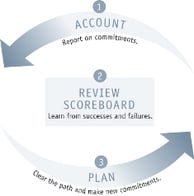 A winning habit starts with 3 Strategic Disciplines: Priority, Metrics, and Meeting Rhythms. Forecasting, accountability, individual, and team performance improve dramatically.
A winning habit starts with 3 Strategic Disciplines: Priority, Metrics, and Meeting Rhythms. Forecasting, accountability, individual, and team performance improve dramatically.
Meeting Rhythms achieve a disciplined focus on performance metrics to drive growth.
Let Positioning Systems help your business achieve these outcomes on the Four most Important Decisions your business faces:
|
DECISION |
RESULT/OUTCOME |
|
PEOPLE |
|
|
STRATEGY |
|
|
EXECUTION |
|
|
CASH |
|
Positioning Systems helps mid-sized ($5M - $250M+) businesses Scale-UP. We align your business to focus on Your One Thing! Contact dwick@positioningsystems.com to Scale Up your business! Take our Four Decisions Needs Assessment to discover how your business measures against other Scaled Up companies. We’ll contact you.
 NEXT BLOG – Joan Herrmann Interview
NEXT BLOG – Joan Herrmann Interview
In 2012 I spent 7 months in the hospital battling Acute Myeloid Leukemia. For the past 6 years, I’ve been writing a book about my journey and miraculous recovery. Joan Herrmann, radio personality for NY’s Am 970, The Answer & iHeart Media CYACYL's Conversations with Joan, interviewed me last Sunday. Next blog I share the interview and the questions she asked about my journey.






.jpeg?width=150&height=135&name=Hand%20with%20marker%20writing%20the%20question%20Whats%20Next_%20(1).jpeg)

